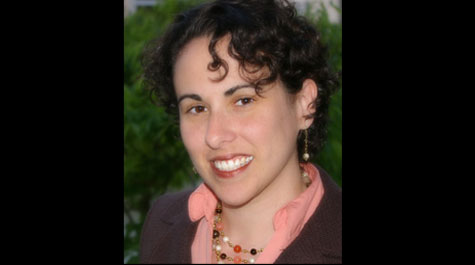W&M faculty in the media this month
Following are selected examples of William & Mary faculty and staff members in the media. - Ed.
The disaster that wasn't: Memories of the D.C. region's 2011 earthquake
In an Aug. 23 Washington Post article, Christopher “Chuck” Bailey, professor and chair of the geology department at William & Mary, discussed the 5.8-magnitude earthquake that struck Washington, D.C. five years ago.
According to the Post, some people ran for their lives while others shrugged it off and left work early. Few were injured and no one died. But the total cost estimate of the damage was in the tens of millions of dollars.
As officials reviewed the damage, geological experts were confounded as to what caused the earthquake.
“There’s a small army of geologists trying to understand the geology in central Virginia deep below the mantle,” said Bailey.
But according to Bailey, scientists have learned significant details about the commonwealth’s ‘’crustal structure’ since the 2011 event. Their findings suggest that even small earthquakes can create a lot of damage for an area.
Still, the question remains. What caused the earthquake?
“It is not fracking,” said Bailey, but scientists investigating the occurrence still do not know the complete answer.
Why some women won't support Hillary Clinton
In an Aug. 19 Atlanta Journal-Constitution article, Debra Shushan, assistant professor of government (Middle East Politics) at William & Mary, discussed why some women are finding it hard to support Hillary Clinton in her bid for the presidency.
According to AJC, some that she isn’t the best person to represent the country.
The article went on to say that there are possibly three reasons that some American women are not supporters of Clinton. First, disagreement over policy issues. Two, the belief that Clinton has been connected to so many scandals that she must be untrustworthy and power hungry. Finally, anger at her willingness to go against beliefs about a “woman’s place.”
Shushan noted that overall trust could be a factor but there are also other underlying details that need to be explained.
“Some do not think it’s a woman’s job to be president. Others are not willing to accept when a woman compromises herself and her principles in the ways that male politicians do — in the way that any politician must in order to have a shot at becoming president,” said Shushan. “Many women only want a female president if the woman in question fits their version of what a woman should be. Female identity is deeply contested in our culture, not least among women ourselves. This leads many of Hillary’s female detractors to adopt ‘not this woman’ as a rallying cry. And certainly not this woman first.”
'Hamilton' missed a chance to highlight Haitian Revolution
In an Aug. 6 Miami Herald op-ed, Chinua Thelwell, assistant professor of Africana studies and history at William & Mary, penned an opinion piece regarding the play “Hamilton.” The musical which is based on the life of America’s first Secretary of Treasury, a Founding Father of the United States and author of the “Federalist Papers” premiered on Broadway in 2015
In the op-ed, Thelwell argued that the play missed a major opportunity to properly acknowledge the Haitian Revolution. The Haitian Revolution, which occurred between 1791 and 1804 created the second independent country in the Americas after the United States became independent in 1783.
“Hamilton’ could have broken the trend of silencing Haiti by including one line about the revolution,” said Thelwell. “This line never comes, and the silence continues.”
According to Thelwell, his words are not to minimize the powerful achievements of the play but to recognize the issue revolving around the fact that American history classes leave Haiti out of the story of New World democracy.
“Historians use the phrase ‘age of revolutions’ to describe the democratic revolts that began in the late 18th century, most notably: the American, French and Haitian revolutions,” said Thelwell. “Hamilton’ skillfully draws connections between the American and French Revolutions, etching out a transatlantic conversation between the United States and Europe. But if we are serious about telling the story of multiracial New World democracy, then Haiti must be included.”
White doctors earn more money than black physicians, study finds
In an Aug. 1 Medical Economics article, Peter McHenry, an associate professor of economics at William & Mary, discussed wage gaps between black and white physicians.
According to the article, a Harvard study found that despite identical educational levels and credentials among all male doctors, white doctors earn significantly more than black doctors even when specialty, number of hours worked and practice type are accounted for.
But the study wasn’t able to identify the exact aspects that led to higher incomes among white male doctors.
McHenry calculated compensation differences with a different study on the topic – the 2014 Community Survey, and confirmed the Harvard report that black physicians earn less on average and at the median than white physicians.
“This is true for wage and salary income and also for a total income measure that adds business income to wage and salary income,” said McHenry. “When I looked at the 2014 data, I noticed smaller wage gaps for younger physicians. The [Harvard] study focuses on physicians aged 35 and over. The racial wage gap might widen over physicians’ careers, or the gap might be closing over time.”


















